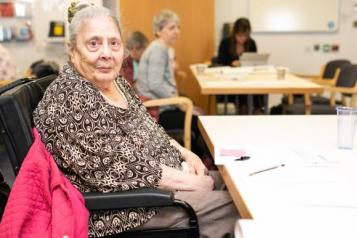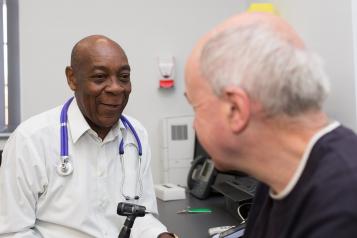What is social prescribing?

What is social prescribing?
Social prescribing is when you work in partnership with a healthcare professional known as a social prescribing link worker to identify non-medical solutions. It is a way for health professionals to connect people to community activities, groups and services that support their practical, social, and emotional needs.
Social prescribing isn’t a one-size-fits-all solution, nor is it a replacement for medical care. It complements traditional healthcare by providing holistic support tailored to individual needs, preferences, and goals.
Social prescribing works particularly well for people who:
- Have one or more long-term conditions
- Need support with low-level mental health issues
- Are lonely or isolated
- Have financial instability or are struggling with the cost-of-living crisis
- Have complex social needs which affect their wellbeing.
How can I access social prescribing?
There are several ways to access social prescribing. GPs make a large proportion of social prescribing referrals. People can also be referred to local social prescribing link workers from a wide range of local agencies, including wider general practice, local authorities, pharmacies, multi-disciplinary teams, hospital discharge teams, social care services and housing associations. Self-referral is also encouraged.
How can a NHS social prescribing link worker help me?
Social prescribing link workers will give you time to talk about what matters to you and take a holistic approach to your health and wellbeing to connect you to the right community groups and services. They then produce a personalised care and support plan and “link” you to organisations and services that can help.
Examples of social prescribing services include:
- Helping you join a befriending group, an art class or a community gardening project if you feel lonely or isolated
- Connecting you to a service that helps with managing debt, claiming benefits or helping you to understand the welfare system if you’re struggling with finances
- Helping you take up a form of exercise that works for you if you have a health condition.
Need more information?
If you have more questions about social prescribing, NHS England has a list offrequently asked questions.
Take a look at these other helpful resources:
Social prescribing (patients-association.org.uk)
Social Prescribing: a new way to feel better - National Association of Link Workers (nalw.org.uk)
The transformative effect of social prescribing (patients-association.org.uk)


